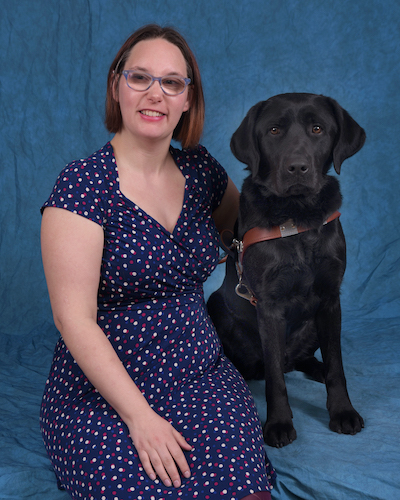May 18, 2017 | essay
Blind Reading is in Braille or Large Print
by Elsa Sjunneson
Ableism creeps into our language all the time. It’s an ever-present, ever-haunting monster. Words that seem innocuous to many, well, they’re not so innocuous to me.
Words matter. The ones we choose to use have the power to wield the touch of love or the strike of pain. They have the ability to change the way someone looks at us, with admiration or with fear. The words we use have power, and so as editors we have to encourage writers to use the words that won’t harm or injure the reader.
Within an industry such as this where words are our trade and pens our weapons of choice, I ride into battle against the language of ableism on an almost daily basis.
Fireside has had several submissions periods so far this year, and I’m the blind assistant editor administering something the business has a name for: blind reading.
Except the only person who’s reading blind is me.
Everyone else is anonymously reading submissions.
If you think this shift in language doesn’t matter, let’s consider some other examples.
Blind to information.
Blind to the truth.
Blind to their pain.
Blind to the names of the writers.
Not seeing, here, is equated with a lack of knowledge, not with a lack of the faculty of sight. We’re not talking about literal blindness, we’re talking about ignorance, and when we equate ignorance with disability we’re assuming that people with blindness aren’t knowledgeable.
Think I’m being too sensitive?
I’m not. Because words matter.
Words have the ability to shift the way that people view things in society. So, if you’re constantly subconsciously aligning blindness with ignorance, when you see a blind person stopping to say, cross the street, you might think the blind person needs your help, because they don’t know things. It’s not about whether or not the blind person can see, it’s about whether or not they know when they can cross the street.
Which brings us back to the idea of the blind read: It’s about not knowing things about the writer.
Publishing has an ableism problem. We don’t have enough disabled writers out there. We don’t have enough disabled narratives that ring with truth out there. We don’t have enough, and every single time we use ableist language to describe how we do things, we’re probably pushing people away. It might not seem like it, but we need to change the language.
We need to read anonymously, not blindly. We need to talk about epic tales, not crazy tales. We need to erase words like dumb, idiotic, lame, and stupid from the way that we describe poorly written stories.
We have to do better, and that means looking hard at the words we use and considering that perhaps we aren’t as evolved as we like to think.
I’m the only one reading blind on this staff, and I’m also the one who can see the cover letters, the names of authors, and whatever other information our submission readers don’t have when they are reading anonymously, without all the knowledge.
